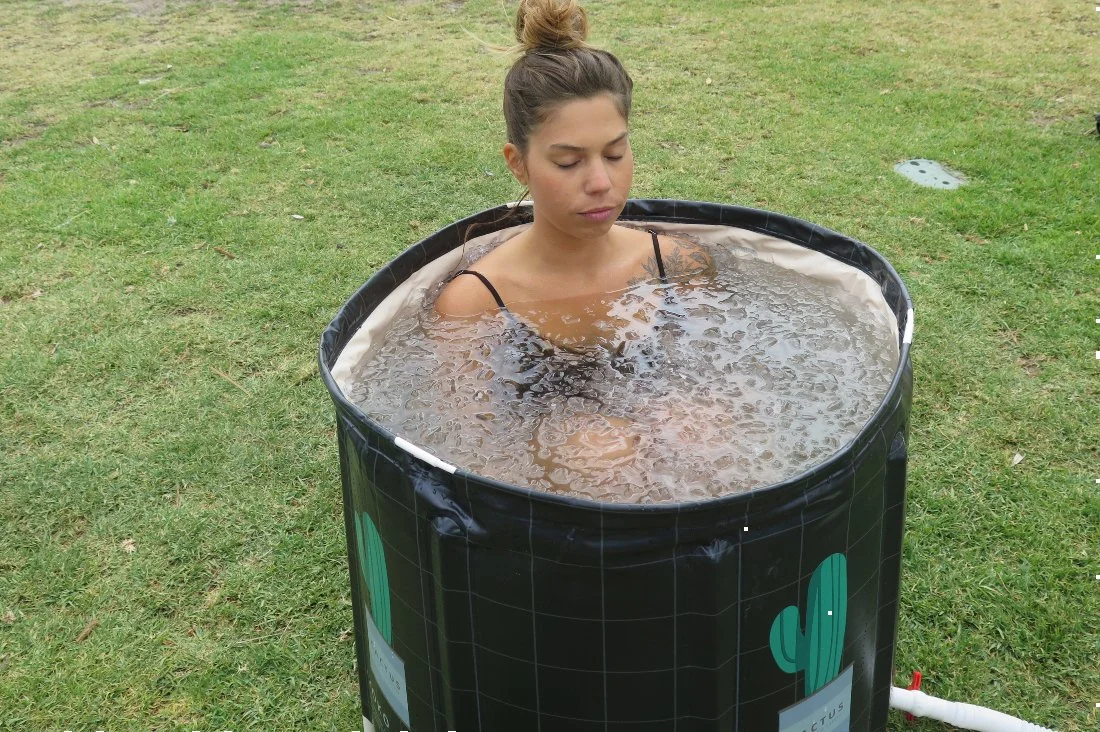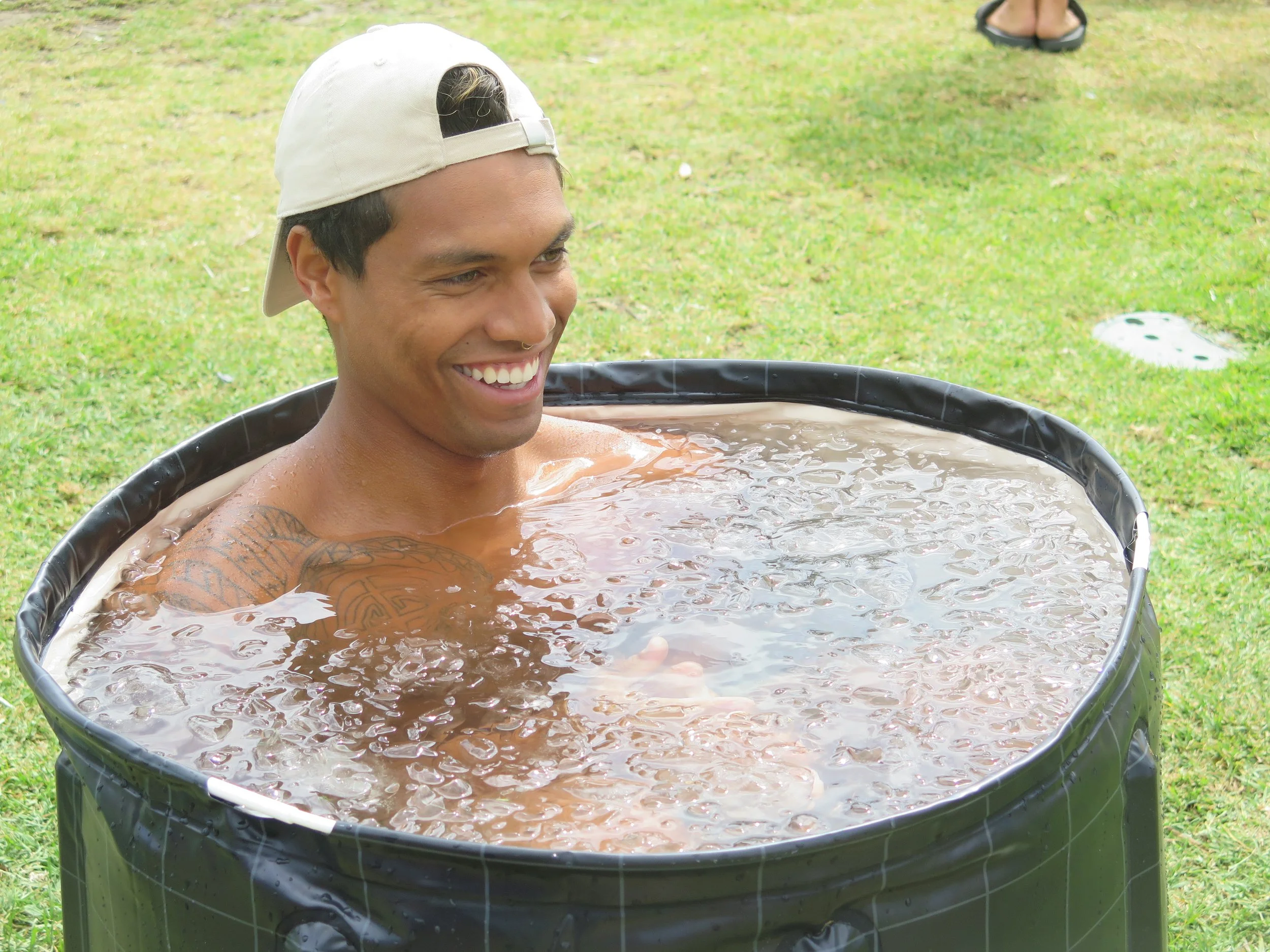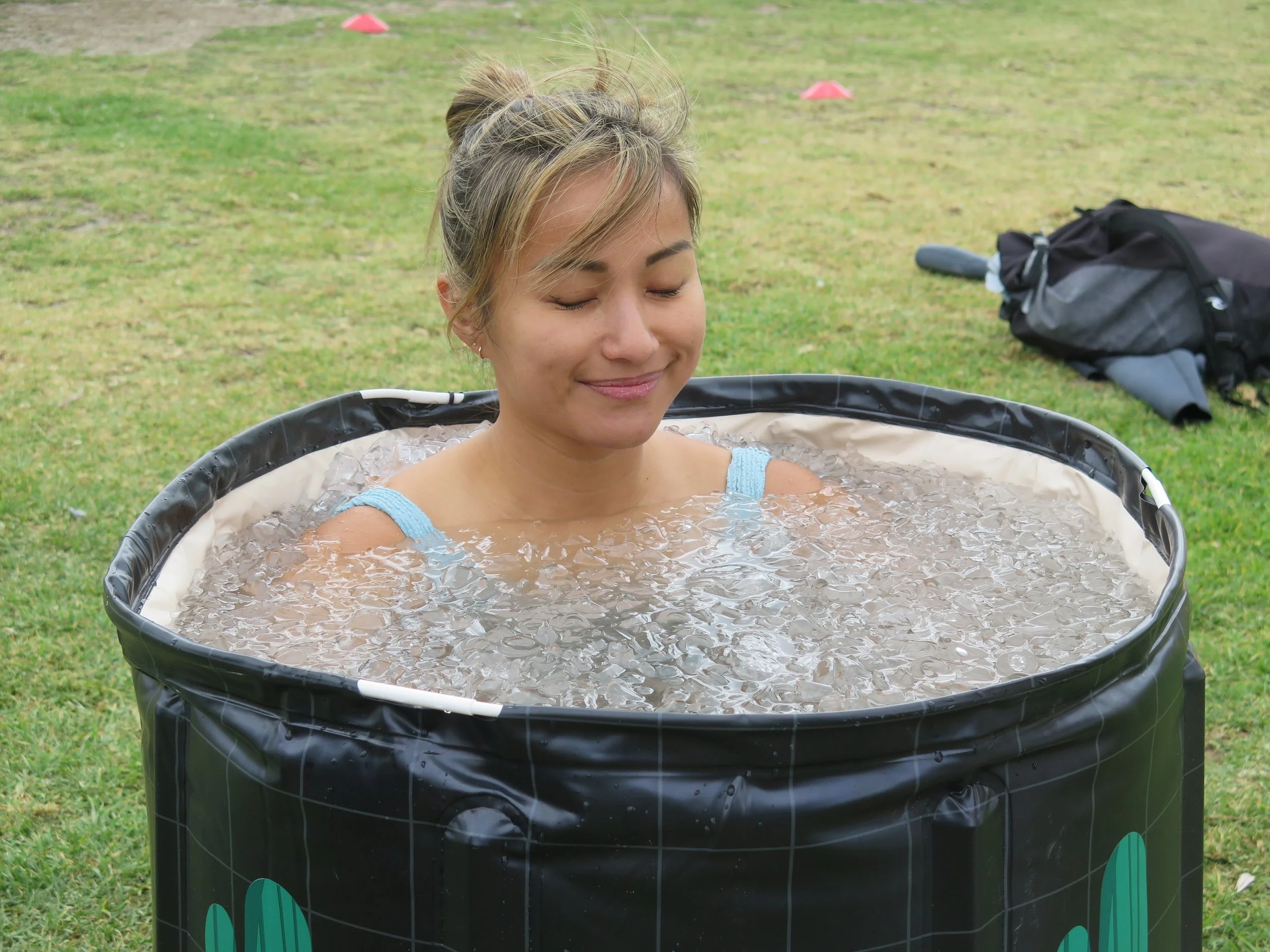Cold Water Therapy: The Benefits and How to do it Safely
Words: Aaron Bell
Here at WOW, our surf therapy programs are run all year round, even in the cold water through winter and there’s a good reason why. Cold water therapy has proven benefits to our mental and physical wellbeing.
Cold water therapy, also known as ‘cold hydrotherapy’ is a concept that has been practiced for many years and in recent times has made a bit of a comeback. All thanks to our annual cold water challenge Ducktober, of course!
Benefits of Cold Water Therapy
Recovery
If you see athletes sitting in an ice bath post-game, that’s because cold water reduces muscle soreness and aids a speedy recovery from injury and inflammation.
Evidence suggests that cold water therapy helps to reduce muscle inflammation. The temperature of the water lowers the damage of the affected tissue, and reduces further swelling.
Enhanced Circulation
Evidence shows that without healthy blood flow, we can experience symptoms like headaches, high blood pressure, and fatigue. Cold water therapy is proven to boost cardiovascular circulation, which is beneficial for a healthy heart, a strong immune system, and a high level of energy.
Immune system and metabolism
When our bodies are exposed to cold water frequently, it has to work harder to maintain its temperature. This boosts our metabolism rate, as our body is burning energy to regulate its internal temperature. By surfing in winter, or even regularly taking cold showers, we are stimulating this response in our bodies.
Our blog on the physical and mental benefits of exercise in winter talks about how exercise strengthens our immune system, helping us to fight off cold and flu viruses in the cooler months. Cold water therapy takes it one step further, with some evidence showing it can stimulate your body's immune system, improving your ability to fight illness.
At WOW, we are about more than just a healthy body, and cold water therapy also has proven benefits to our mental and emotional wellbeing.
Hormones and Heart Rate
Research suggests cold water exposure, even if it’s only a cold shower, activates the vagus nerve. This results in slowing of our breathing and heart rate, which can reduce the feelings of stress and anxiety.
Resilience
Research into the Wim Hof method tells us that cold water immersion is developing a natural tolerance to the stimulant of cold. This physical resilience is training our body to adapt to stress. This same resilience can subconsciously help us with other non-physical stress related triggers.
Essentially, you are training your body to be okay with being uncomfortable, and while we don’t want to live in this state for long periods of time, by practicing cold water therapy regularly, we are building up our ability to remain calm and overcome stress.
Mental health
The ocean can help alleviate the symptoms of depression, as that's what our programs are based around. So it's no surprise to learn that cold water therapy studies also suggest that cold water swimming helps to alleviate the symptoms of depression and anxiety.
Whether you're along for the ride on one of our surf therapy programs, or just making the most of our beautiful coast in the quiet winter months, we have no doubt you'll be feeling better mentally when you've been for that cold ocean dip.
Cold water therapy - how to practice safely
If you have just stumbled across WOW, or the Wim Hof method, and are wanting to get involved, there are a few ways to implement this practice without diving into a frozen lake in your budgie smugglers.
Warm-to-cold Showers
We all love a hot shower - especially in winter. But to introduce yourself to cold water therapy, gradually turn the temperature to cold before hopping out. It can be a controlled way to ease into practice, and after a while, you can have entirely cold showers.
Ice Baths
Add ice to cold water until the water reaches between 10-15 degrees. Gradually increase the time you spend in the ice-bath. A good goal to reach is 10 minutes. It’s important to not push yourself to the point of real physical pain. Try to increase your time spent over several days or even weeks. A good time to have an ice-bath can be post workout.
Ocean swim (or surf!)
The most primal cold water therapy, can be to simply dive into the ocean in winter. For safety, and for connection, it can be great to go with a friend or family member. This can also help you stay committed through those cold winter months.
Of course, if you’re even braver, go for a surf in winter! But be careful not to push yourself out of your comfort zone or to go alone if you are a beginner.
Reap the benefits of cold water by committing to our Ducktober challenge! Sign up here.



